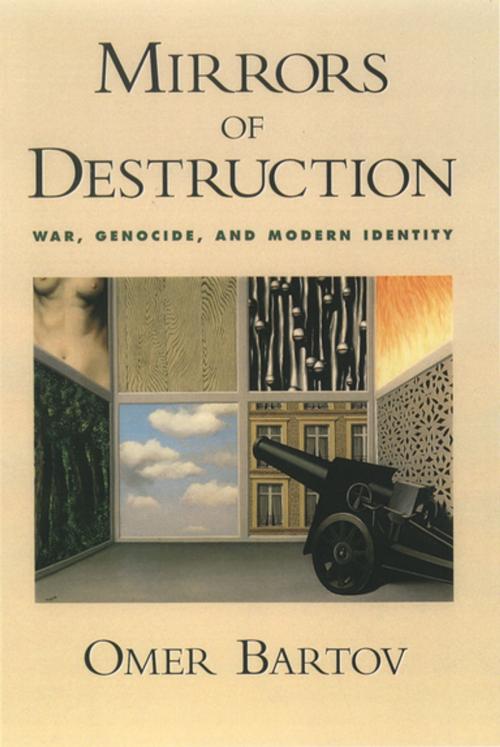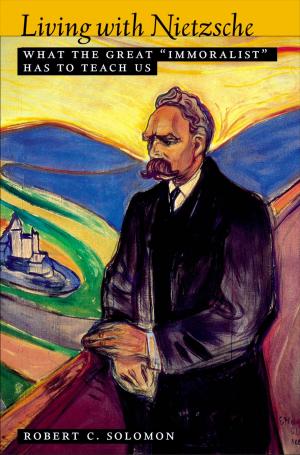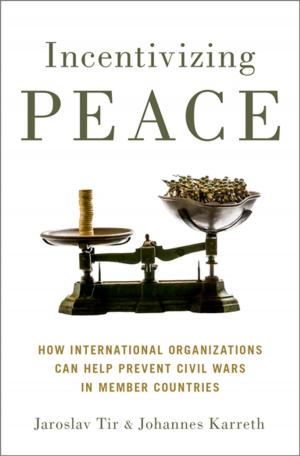Mirrors of Destruction
War, Genocide, and Modern Identity
Nonfiction, History, Jewish, Holocaust, European General| Author: | Omer Bartov | ISBN: | 9780190281946 |
| Publisher: | Oxford University Press | Publication: | August 24, 2000 |
| Imprint: | Oxford University Press | Language: | English |
| Author: | Omer Bartov |
| ISBN: | 9780190281946 |
| Publisher: | Oxford University Press |
| Publication: | August 24, 2000 |
| Imprint: | Oxford University Press |
| Language: | English |
Mirrors of Destruction examines the relationship between total war, state-organized genocide, and the emergence of modern identity. Here, Omer Bartov demonstrates that in the twentieth century there have been intimate links between military conflict, mass murder of civilian populations, and the definition and categorization of groups and individuals. These connections were most clearly manifested in the Holocaust, as the Nazis attempted to exterminate European Jewry under cover of a brutal war and with the stated goal of creating a racially pure Aryan population and Germanic empire. The Holocaust, however, can only be understood within the context of the century's predilection for applying massive and systematic methods of destruction to resolve conflicts over identity. To provide the context for the "Final Solution," Bartov examines the changing relationships between Jews and non-Jews in France and Germany from the outbreak of World War I to the present. Rather than presenting a comprehensive history, or a narrative from a single perspective, Bartov views the past century through four interrelated prisms. He begins with an analysis of the glorification of war and violence, from its modern birth in the trenches of World War I to its horrifying culmination in the presentation of genocide by the SS as a glorious undertaking. He then examines the pacifist reaction in interwar France to show how it contributed to a climate of collaboration with dictatorship and mass murder. The book goes on to argue that much of the discourse on identity throughout the century has had to do with identifying and eliminating society's "elusive enemies" or "enemies from within." Bartov concludes with an investigation of modern apocalyptic visions, showing how they have both encouraged mass destructions and opened a way for the reconstruction of individual and collective identifies after a catastrophe. Written with verve, Mirrors of Destruction is rich in interpretations and theoretical tools and provides a new framework for understanding a central trait of modern history.
Mirrors of Destruction examines the relationship between total war, state-organized genocide, and the emergence of modern identity. Here, Omer Bartov demonstrates that in the twentieth century there have been intimate links between military conflict, mass murder of civilian populations, and the definition and categorization of groups and individuals. These connections were most clearly manifested in the Holocaust, as the Nazis attempted to exterminate European Jewry under cover of a brutal war and with the stated goal of creating a racially pure Aryan population and Germanic empire. The Holocaust, however, can only be understood within the context of the century's predilection for applying massive and systematic methods of destruction to resolve conflicts over identity. To provide the context for the "Final Solution," Bartov examines the changing relationships between Jews and non-Jews in France and Germany from the outbreak of World War I to the present. Rather than presenting a comprehensive history, or a narrative from a single perspective, Bartov views the past century through four interrelated prisms. He begins with an analysis of the glorification of war and violence, from its modern birth in the trenches of World War I to its horrifying culmination in the presentation of genocide by the SS as a glorious undertaking. He then examines the pacifist reaction in interwar France to show how it contributed to a climate of collaboration with dictatorship and mass murder. The book goes on to argue that much of the discourse on identity throughout the century has had to do with identifying and eliminating society's "elusive enemies" or "enemies from within." Bartov concludes with an investigation of modern apocalyptic visions, showing how they have both encouraged mass destructions and opened a way for the reconstruction of individual and collective identifies after a catastrophe. Written with verve, Mirrors of Destruction is rich in interpretations and theoretical tools and provides a new framework for understanding a central trait of modern history.















